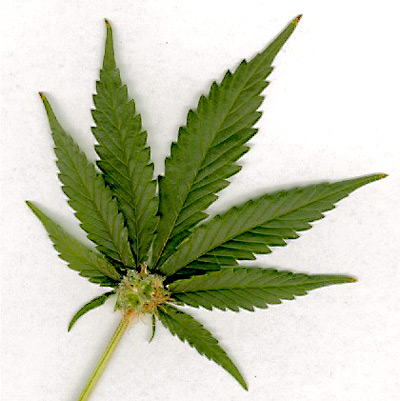
NASHVILLE, Tenn. (BP) — California’s medical marijuana dispensaries are the target of a recent crackdown by the Obama administration even as more Americans than ever support the drug’s legalization and a major doctors’ group wants to open it up to more research.
At the outset of his term, President Obama pledged to respect state laws on medical marijuana, but “suddenly and with no logical explanation,” as the Marijuana Policy Project said, Obama has become “arguably the worst president in U.S. history regarding medical marijuana.”
In early October, federal prosecutors announced a crackdown on medical marijuana dispensaries in California, even if they are operating legally under the state’s 15-year-old medical marijuana law.
“California’s marijuana industry supplies the nation,” U.S. Attorney Benjamin Wagner said Oct. 7, citing a federal study that found 72 percent of marijuana plants confiscated nationwide were grown in California. “Huge amounts of marijuana grown here in this state [are] flowing east to other states, and huge amounts of money are flowing back in the opposite direction.”
A Southern Baptist ethicist was encouraged by the Obama administration’s decision to enforce federal law regarding marijuana merchants.
“I sympathize with those who simply want to make sure people have every possible means available to them to alleviate their suffering,” Barrett Duke, vice president for public policy and research at the Ethics & Religious Liberty Commission, told Baptist Press. “Despite the good intentions of millions of people, reality has set in. Marijuana cannot be adequately regulated to prevent its widespread abuse.”
Some have called medical marijuana “the new California gold rush,” and the Associated Press highlighted an Orange County strip mall where eight of the 11 second-floor suites are occupied by dispensaries and doctors’ offices where healthy people can receive medical marijuana prescriptions.
“The intention regarding medical marijuana under California state law was to allow marijuana to be supplied to seriously ill people on a nonprofit basis,” U.S. Attorney Melinda Haag said. “What we are finding, however, is that California’s laws have been hijacked by people who are in this to get rich and don’t care at all about sick people.”
Marijuana is legal in 16 states for people with doctors’ recommendations, but it remains illegal under federal law. U.S. prosecutors are focusing their efforts on dispensaries that have large operations or are close to areas with children such as schools and sports fields. Letters were sent to those dispensaries and to landlords, ordering them to shut down or face criminal charges and confiscation of property.
“Quite frankly, marijuana is more enticing and lucrative as a recreational drug than as a medicine,” Duke said. “Compared to its destructive capacity, its true medicinal value is practically nonexistent. It is a mind-altering gateway drug to much more destructive drugs. It must remain illegal for the sake of millions of people, especially teenagers, who would otherwise be deceived into thinking that it is safe to use.”
Kevin Sabet, a former White House drug advisor, said if marijuana has a medical purpose it should be approved by the Food and Drug Administration for use in pharmaceuticals.
“You synthesize and deliver it in the way we deliver medicines in this country, through pharmacies — not dispensaries with 300-pound bouncers, bars on the windows and neon lights,” Sabet said, according to MSNBC.com.
The aggressive enforcement of federal law in this case should send a strong warning signal to states considering similar legalization efforts, Sabet added.
Meanwhile, a Gallup poll of 1,005 registered voters in October found that support for legalization of marijuana is at an all-time high. Fifty percent of those surveyed favored decriminalizing the drug, up from 46 percent last year.
With 46 percent of the people polled opposing legalization, this was the first time the number of Americans favoring legalization surpassed those who opposed it. Support for legalization was highest in the west and among liberals and younger Americans.
When Gallup began polling about legalizing marijuana in 1969, 12 percent of Americans favored it and 84 percent were opposed. It is the third most popular recreational drug in America behind alcohol and tobacco, and 16.7 million Americans aged 12 and older used marijuana at least once in the month prior to being surveyed, according to the National Survey on Drug Use and Health in 2009.
California voters in 2010 had the opportunity to legalize marijuana for recreational use but defeated the initiative 54-46 percent.
The California Medical Association, representing more than 35,000 of the state’s physicians, in October became the first major medical association in the nation to urge the outright legalization of marijuana.
Their reasoning, though, is not that they believe in the drug’s ability to relieve physical distress. Donald Lyman, a Sacramento physician who wrote the group’s new policy, told the Los Angeles Times the CMA is increasingly frustrated by the state’s medical marijuana law.
Doctors, Lyman said, are placed in an uncomfortable position when patients ask them for prescriptions to use marijuana as medicine. Physicians must decide whether to prescribe a substance that is illegal under federal law.
“It is an open question whether cannabis is useful or not,” Lyman said. “That question can only be answered once it is legalized and more research is done. Then, and only then, can we know what it is useful for.”
CMA, a state affiliate of the American Medical Association, has likened medical marijuana to a “folk remedy” and declared that it has few proven health benefits, the Times said. Current laws, Lyman said, have “proven to be a failed public health policy.”
In July, the Obama administration turned down a request to reclassify marijuana, which currently ranks alongside heroin and LSD, but the decision is being appealed in federal court.
A spokesman for the California Police Chiefs Association called the CMA recommendation “an unbelievably irresponsible position” given the negative physiological impacts of the drug.
–30–
Erin Roach is an assistant editor of Baptist Press.

















